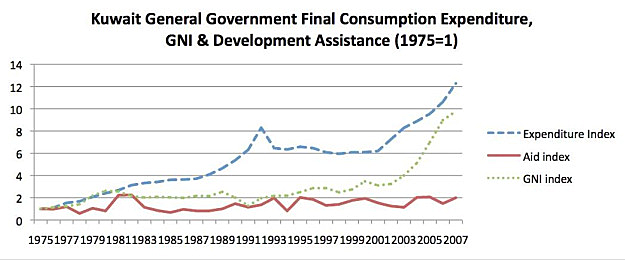My colleagues here at William and Mary, Debra Shushan and Chris Marcoux, have used AidData in order to describe variation in the allocation of Arab aid over time. They have posted a short article on Foreign Policy’s “Middle East Channel” that draws from a longer working paper on Arab aid. They write:
"So what does it mean to say that these Arab donors have become less "generous"? Following convention, generosity measures a country's aid as a percentage of its gross national income (GNI). In 1970, the United Nations called on all states to give a minimum of 0.7 percent of their GNI as official development assistance, and Arab donors generally have compared favorably with the established donors which are members of the OECD's Development Assistance Committee in terms of their aid generosity. We find that the decline in the generosity of bilateral Arab aid since 2000 is due not to a decline in aid levels (which have remained relatively flat) but to soaring GNI as Arab countries have harvested tremendous profits from oil sales. Simply put, generosity seems to have fallen because Arab donors haven't increased their aid commensurate with their ascending national wealth. This makes the recent period different from the 1980s, when aid from Arab countries declined along with state revenue, diminished by lower oil prices."
The chart below illustrates their point. Kuwait’s aid effort has remained relatively constant over the past 25 years. However, over the same time period Gross National Income and domestic spending has skyrocketed. So, as a proportion of either GNI or total government spending, Kuwait has reduced its aid spending. The gap between income and aid allocation has grown sharply over the past 10 years:


